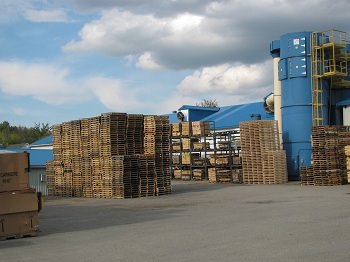In the dynamic landscape of the Fast-Moving Consumer Goods (FMCG) sector, the strategic adoption of pallet pooling emerges as a transformative solution, optimizing supply chain efficiency. Under the heading “Elevating Supply Chain Efficiency: Unveiling the Advantages of Pallet Pooling in the Fast-Moving Consumer Goods (FMCG) Sector,” this exploration delves into the unique advantages that FMCG businesses can harness by embracing pallet pooling as a central component of their logistics strategy.
1. Enhanced Flexibility and Scalability: Pallet pooling introduces a new level of flexibility and scalability to the FMCG supply chain. As demand fluctuates, businesses can dynamically adjust their pallet requirements without the constraints of ownership. Pooled pallets offer the flexibility to scale operations up or down, accommodating seasonal variations or responding to market dynamics with agility.
2. Cost-Efficient Resource Utilization: One of the primary advantages of pallet pooling in the FMCG sector lies in cost-efficient resource utilization. Instead of investing capital in pallet ownership and maintenance, businesses can leverage a shared pool of pallets. This approach optimizes resource allocation, reducing the financial burden associated with purchasing, repairing, and managing a dedicated pallet fleet.
3. Streamlined Reverse Logistics: Pallet pooling excels in facilitating streamlined reverse logistics processes, a crucial aspect for FMCG businesses dealing with product returns, recalls, or recycling initiatives. Pooled pallets can seamlessly flow back through the supply chain, minimizing complexities associated with tracking and managing the return of owned pallets. This efficiency enhances overall supply chain resilience.
4. Consistent Pallet Quality and Compliance: In the FMCG sector, maintaining consistent pallet quality and compliance is paramount. Pallet pooling providers adhere to stringent quality standards and compliance measures, ensuring that each pallet meets industry requirements. This consistency eliminates concerns related to the variability in pallet quality and guarantees that every pallet in the pool adheres to the specified standards.
5. Sustainable and Environmentally Friendly Practices: Pallet pooling aligns seamlessly with the growing emphasis on sustainability in the FMCG sector. By promoting the reuse and recycling of pallets, pooling contributes to reduced environmental impact. Pooled pallets are often made from sustainable materials, and the circular economy model inherent in pooling aligns with the FMCG industry’s commitment to eco-friendly practices.
6. Reduction in Pallet Loss and Theft: The FMCG sector faces challenges related to pallet loss and theft, impacting operational efficiency and increasing costs. Pallet pooling mitigates these risks by implementing robust tracking and control systems. Each pallet in the pool is monitored, reducing the likelihood of loss or theft. This enhanced visibility minimizes disruptions and ensures a more secure and reliable supply chain.
7. Efficient Handling and Standardization: Pooled pallets are designed for efficient handling, contributing to streamlined operations within FMCG warehouses and distribution centers. Standardization of pallet dimensions and features ensures compatibility with various automated handling systems. This standardization optimizes material handling processes, reduces the risk of errors, and enhances overall operational efficiency.
8. Improved Collaboration Across the Supply Chain: Pallet pooling encourages improved collaboration among stakeholders in the FMCG supply chain. With a shared pallet pool, manufacturers, distributors, and retailers work collaboratively to ensure the smooth flow of goods. This collaborative approach fosters stronger partnerships, better communication, and a shared commitment to the success of the entire supply chain network.
9. Adaptability to Dynamic Supply Chain Requirements: The FMCG sector is known for its dynamic and fast-paced nature, characterized by evolving consumer preferences and market trends. Pallet pooling offers adaptability to these dynamic requirements. Businesses can readily adjust the size of their pallet pool, accommodating changes in product assortments, packaging configurations, and distribution patterns to align with market demands.
10. Focus on Core Competencies: By entrusting pallet management to a pooling provider, FMCG businesses can redirect their focus and resources towards core competencies. Pallet pooling eliminates the need for businesses to invest time and energy in managing pallet fleets, allowing them to concentrate on product innovation, marketing strategies, and other aspects essential for staying competitive in the FMCG sector.
In conclusion, the advantages of pallet pooling in the FMCG sector extend far beyond the immediate benefits of cost savings. From enhanced flexibility and sustainability to streamlined reverse logistics and improved collaboration, pallet pooling emerges as a strategic choice for FMCG businesses seeking to elevate supply chain efficiency. Embracing pallet pooling not only optimizes resource utilization but also positions FMCG companies at the forefront of sustainable and adaptable logistics practices, essential for thriving in the ever-evolving consumer goods market.






